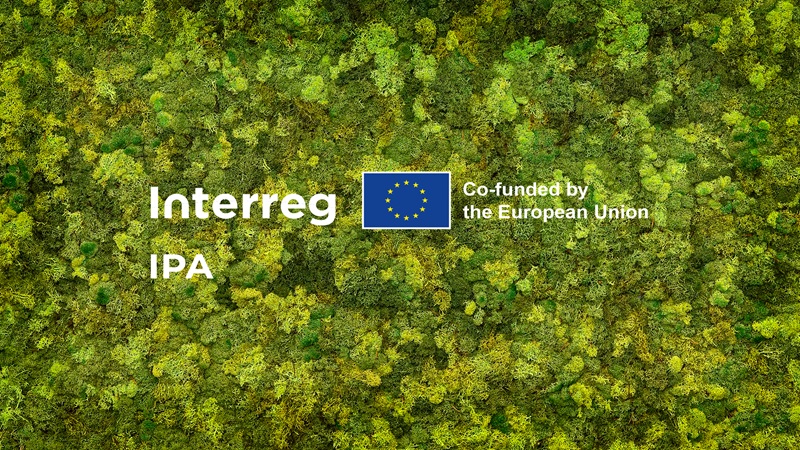
INTERACTIVE CLIMATE-SERVICE SYSTEM – USE OF GREEN INFRASTRUCTURES AND ONLINE TOOLKIT FOR BETTER ADAPTATION AND RESILIENCE TO THE HAZARDS OF CLIMATE CHANGE IN THE CROATIA-SERBIA CROSS BORDER REGION
Acronym: INTERCLIM
Project code: HR-RS00094
Lead Beneficiary: University of Novi Sad Faculty of Sciences (UNSPMF)
Partners: PUC City Greenery Novi Sad (GREEN)
Josip Juraj Strossmayer University of Osijek, Faculty of Civil Engineering and Architecture Osijek (GRAFOS)
City of Osijek (OSIJEK)
Duration: September 2024 – March 2027
Total budget: 1,805,768.00 €
EU funding: 1,534,902.20 €
Contact: stevan.savic@dgt.uns.ac.rs (Stevan Savić, project manager)
PROJECT SUMMARY
Common territorial challenges in the Croatia-Serbia cross-border region are: a) low adaptability to current extreme climate events occurring in the region (such as heat waves, increasing urban temperatures, pluvial/river floods, long droughts, sudden storms); b) limited knowledge of citizens, economy and local communities about existing sustainable measures and nature-based solutions (NBS) that can contribute to better resilience and adaptation to climate change impacts; and c) low interactive communication between ‘science-local community-citizens’, which results in weak implementation of vertical/horizontal green infrastructures, lack of recognition of climate ‘hot spots’ (especially in urban areas), unpreparedness of each local community or person for a specific climate hazard.
The overall objective of this project is to increase and strengthen adaptive and resilience capacities of citizens and economy to climate change processes and weather hazards, and show how to effectively implement solutions on the field: a) by implementation of green infrastructure systems (‘green rooms’ with environmental monitoring systems) that represent an ‘outdoor living space’ concept and a new nature-based solution in the region and Europe; b) by developing the interactive online climate/environment platform and mobile applications that will provide the ‘climate change adaptation and weather hazards resilience’ toolkit freely available for citizens and economy in the region. All these actions will create one ‘climate-service system’ that in overall will educate public and private sectors about climate change adaptation measures, and increase knowledge how to implement those measures in the field.
The main project outputs are: a) deployment of green infrastructure and environmental monitoring systems in public urban spaces of Novi Sad and Osijek (six ‘green rooms’ and four monitoring stations), as a micro-level solution related to improvements of micro-climate and environmental conditions in cities and better adaptable capacities for citizens; and b) development of an interactive online climate/environment platform with mobile applications and as final product the creation of the ‘climate change adaptation and weather hazards resilience’ toolkit (CCA/WHR), that will cover the Croatia-Serbia cross-border region as an solution that provides information, knowledge and practical examples how to implement relevant adaptation and resilience measures in the region. Achievement of the project will positively affect on the first place the citizens (general public) – particularly the population in cities with more than 30.000 residents (it is about more then 1 mil. in the region), but also on target groups such as local and regional public authorities, sectoral agencies, NGOs, workers on buildings/infrastructures, NGOs, private sectors and experts/students.
The project is based on the ‘science-to-society’ concept. The project approach in solving regional climate change challenges is through: a) the joint implementation of a new concept of nature-based solution (‘green rooms’ with monitoring systems) in two largest cities in the region (Novi Sad and Osijek); and b) development and use the joint solution represents through the ‘climate change adaptation and weather hazards resilience’ toolkit that covers the entire Croatia-Serbia cross-border area. This approach will be complemented by promotional and educational activities related to adaptation to climate change and sustainable development topics. Recognizing that these climate and environmental issues are not the case in one country, but it is a regional problem, only the inter-regional and international cooperation can lead to the improved outcomes in adaptation and resilience to climate change hazards.
The originality and innovation of this project is: a) the implementation of the green infrastructure systems (‘green rooms’ with monitoring stations) as a new nature-based solution in the region and Europe, and this solution represents the ‘outdoor living space’ concept to serve as micro-climate adaptation and weather shelter for citizens; and b) creation of the ‘climate change adaptation and weather hazards resilience’ toolkit based on interactive online climate/environment platform and mobile applications, that represents the regional joint solution with materials and practical solutions on CRO and SRB languages in order to be maximally used by citizens and economy from the region.
PROJECT OVERALL OBJECTIVE
Increase adaptation capacities in modified climate conditions in the cities of the region (caused by climate change) by implementing green infrastructure systems as a nature-based solution in urban areas of Novi Sad and Osijek, and strengthen adaptability and resilience of economy and citizens in the cross-border region to climate hazards by creating and maintaining interactive online climate/environment platform with a toolkit for ‘climate change adaptation and weather hazards resilience’.
PROJECT RESULTS
Creating and implementation the new ‘climate-service system’ in the cross-border region as a joint solution that contains new green infrastructure systems and online interactive climate adaptation platform. This new ‘climate-service system’ presents the ‘climate change adaptation and weather hazard resilience’ toolkit (CAA/WHR) that provide necessary data and solution actions for heatwaves, pluvial/river floods, droughts and stormy weather. Join solution will be taken up by project partners PUC City Greenery Novi Sad (PP2), and will be integrated in „Program of investment activities and services of the Public Utility Company “Gradsko zelenilo” Novi Sad“; and by City of Osijek (PP4) and this solution will be integrated in „Program for mitigation of climate change, adaptation to climate change and protection of the ozone layer of the City of Osijek“.
DISCLAIMER
“This website is funded/co-funded by the European Union. Its contents are the sole responsibility of University of Novi Sad Faculty of Sciences and do not necessarily reflect the views of the European Union.”
www.interreg-croatia-serbia.eu
The project is co-financed by ERDF and IPA III funds of the European union

